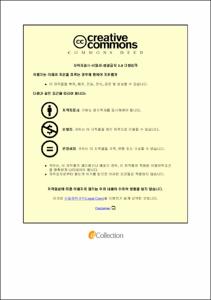코로나 19 상황에서 유자녀 간호사의 직무스트레스와 양육스트레스가 재직의도에 미치는 영향
- Abstract
- 본 연구는 코로나 19 상황에서 유자녀 간호사의 직무스트레스와 양육스트레스를 파악하고, 재직의도에 어떠한 영향을 미치는지 확인하여 향후 코로나 19 와 같은 신종감염병 상황에서 유자녀 간호사의 직무스트레스와 양육스트레스 감소를 위한 구체적인 중재 프로그램 개발과 정책 마련에 필요한 기초자료로 활용되고자 시도되었다.
전국에 소재한 병원에서 근무하는 유자녀 간호사 중 연구참여에 동의한 대상자 207명으로부터 자가보고식 설문지를 사용하여 자료를 수집하였다. 자료는 2022년 4월 13일부터 5월 03일까지 수집하였다. 수집된 자료는 SPSS Statistics ver 27.0 program을 이용하여, 빈도와 백분율, 평균과 표준편차, Independent t-test, ANOVA, Scheffe^' test, Pearson Correlation Coefficient, 다중회귀분석으로 하였다.
본 연구의 결과를 요약하면 다음과 같다.
대상자의 일반적 특성으로는 40세 이하, 학사 학위, 근무부서로는 외래, 검사실, 근무년 수는 10년~20년 사이, 직위는 일반간호사, 수입원은 맞벌이, 자녀의 나이는 8세 미만의 아이를 가진 간호사, 자녀의 양육문제로 인해서 사직을 생각해 본적이 ‘없다’, 거주지역 항목에는 서울에 사는 유자녀 간호사의 재직의도가 높았다.
재직의도와 일반적 특성에서 자녀의 양육문제로 인해서 사직을 생각해 본적이 ‘없다’는 결과와 거주지역이 서울인 변수에서 유의한 차이가 있었다. 자녀의 양육문제로 인해서 사직을 생각해 본적이 있냐는 변수 ‘없다’라고 답한 대상자가 3.16±0.19점이었고,‘있다’라고 답한 대상자가 3.13±0.33점이었다(t=3.942, p=.048). 거주지역 항목에는 서울에 사는 유자녀 간호사가 3.17±0.22점이었고, 서울 외에 거주하는 대상자가 3.10±0.37점이었다(t=5.901, p=.016).
대상자의 직무스트레스는 5점만점에 4.04±0.57점, 양육스트레스는 4점만점에 2.99±0.35점, 재직의도는 4점만점에 3.13±0.31점이었다. 재직의도는 직무스트레스의 하위요인 9개 업무량 과다(r=-.151, p=.030), 전문직으로서 역할갈등(r=-.177, p=.011) 전문지식과 기술부족(r=-.164, p=.018), 대인관계상의 문제(r=-.183, p=.008), 업무상의 갈등(r=-.167, p=.016), 부적절한 보상과 대우(r=-.228, p=.001), 익숙치 않은 상황(r=-171, p=.014), 상사와의 관계 (r=-.137, p=.049), 밤근무(r=-.151, p=.030) 모두와 유의한 차이가 있었고, 양육스트레스의 하위요인 중에서는 부모의 요인(r=-.190, p=.006)과 유의한 차이가 있었다.
본 연구의 결과로 재직의도에 유의한 영향을 미치는 요인은 직무스트레스의 ‘부적절한 보상과 대우’(β=-.204, p=.003)와 양육스트레스의 ‘부모의 요인’(β=-.161, p=.019)으로 확인되었으며 재직의도의 6.8%를 설명하였다(F=8.522, p<.001).
본 연구의 결과를 통해 코로나 19 상황에서 유자녀 간호사들의 재직의도를 높이기 위해 업무에 따른 적절한 보상과 대우를 제공할 필요가 있다. 또한, 부모의 요인으로 인해 생긴 양육스트레스를 경감시키기 위해 부모의 요인의 항목을 파악하고 중재를 마련할 기회가 필요할 것으로 사료된다.
주요어 : 코로나감염병-19, 간호사, 직무스트레스, 양육스트레스, 재직의도.
|ABSTRACT
The Influence of Job Stress and Parenting
Stress on Retention Intention of Nurses
with Children in the COVID-19 Situation
Cho, Sun Hwa
Department of Clinical Nursing
The Graduate School of Industry
Directed by Professor
Choi, Hye Ran, RN, Ph.D.
The purpose of this study is to influence of Job stress and Parenting stress on Retention Intention of nurses with children in the COVID-19 situation. Data were collected using self-report questionnaires from 207 nurses with children who agreed to participate in the study. Participating nurses were working in hospitals South Korea. Data were collected from April 13 to May 3, 2022. The collected data were analyzed using SPSS Statistics Version 27.0, with an independent t-test, ANOVA, Scheffé's method, the Pearson correlation coefficient, and a multiple regression analysis were used to evaluate the data.
The results of this study are summarized as follows.
For relations between the retention intentions employed and general characteristics, the number of participants who answered 'No' to the variable of whether they had ever considered resigning because of child-rearing problems was 3.16±0.19 points and the number for those who answered 'Yes' was 3.13±0.33 points (t = 3.942, p = .048). The area of residence, nurses with children who lived in Seoul scored 3.17±0.22, and nurses residing outside Seoul scored 3.10±0.37 (t = 5.901, p = .016). The two factors had a significant difference in Retention intention.
Participants’ job stress was 4.04±0.57 out of 5 points, parenting stress was 2.99±0.35 out of 4 points, and job intention was 3.13±0.31 out of 4 possible points. The retention intentions employed had correlations with all nine sub-factors of job stress, including excessive workload (r = -.151, p = .030), role conflict as a professional (r = -.177, p = .011), a lack of professional knowledge and skills (r = -.164, p = .018), interpersonal problems (r = -.183, p = .008), work conflicts (r = -.167, p = .016), inappropriate compensation and treatment (r = -.228, p = .001), unfamiliar situations (r = -171, p = .014), relationship with superiors (r = -.137, p = .049), and night shifts (r = -.151, p = .030). Among the subfactors of parenting stress, there was a correlation with the parent's factor (r = -.190, p = .006).
Factors significantly influencing employment intention were “inappropriate compensation and treatment” (job stress) (β = -.204, p = .003) and “parental factors” (parenting stress) (β = -.161, p = .019), which explained 6.8% of the retention intentions employed (F = 8.522, p < .001).
The results of this study demonstrate that it is necessary for nurses with children to be provided with appropriate compensation and treatment at work to increase their retention intentions employed given the COVID-19 situation. To alleviate parenting stress, it is necessary to identify the relevant items of parental factors and provide intervention.
Key Words: COVID-19, Nurses, Job Stress, Parenting Stress, Retention Intentions.
- Issued Date
- 2022
- Awarded Date
- 2022-08
- Type
- dissertation
- Alternative Author(s)
- cho sun hwa
- Affiliation
- 울산대학교
- Department
- 산업대학원 임상전문간호학전공
- Advisor
- 최혜란
- Degree
- Master
- Publisher
- 울산대학교 산업대학원 임상전문간호학전공
- Language
- kor
- Rights
- 울산대학교 논문은 저작권에 의해 보호 받습니다.
- Appears in Collections:
- Industry > Professional Clinical Nursing
- 파일 목록
-
-
Download
 200000632995.pdf
기타 데이터 / 1.92 MB / Adobe PDF
200000632995.pdf
기타 데이터 / 1.92 MB / Adobe PDF
-
Items in Repository are protected by copyright, with all rights reserved, unless otherwise indicated.